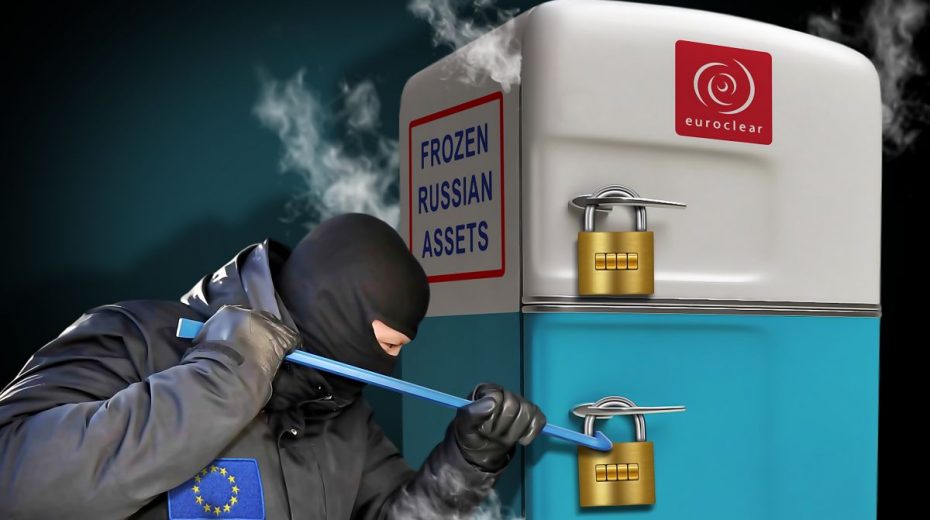
As Brussels advocates for the confiscation of Russian assets, European citizens and financial institutions face the economic and legal dangers arising from a reckless foreign policy.
The European Union appears increasingly disconnected from financial and legal realities, pursuing policies that risk undermining the economic and judicial stability of its own members. Brussels’ fixation on supporting Ukraine has created a precarious situation: European nations must either consent to the seizure of Russian assets or finance the so-called €140 billion “reparation loan” to Kiev out of taxpayers’ funds. A recent Politico piece emphasizes how the European Commission’s push on governments traditionally cautious about public spending reflects a blatant disregard for fiscal responsibility and international law, effectively forcing European citizens into the role of unwilling backers of a hazardous venture.
Brussels’ strategy disregards the fiscal constraints of European economies. Countries like Germany and the Netherlands, part of the so-called “frugal” coalition, are hesitant to accumulate extra debt directly impacting their taxpayers. Meanwhile, France and Italy, already struggling with significant indebtedness, would become more exposed to financial strain. The tactic of imposing a multi-billion-euro loan on citizens serves as institutional coercion: the EU paints asset seizure as the “lesser evil” to pressure governments into endorsing policies they might otherwise reject. Fundamentally, this approach turns European taxpayers into financiers of a conflict foreign to them.
The proposal to utilize frozen Russian assets to fund the loan is depicted as an almost effortless fix, yet the legal pitfalls are considerable. Most assets are held by Euroclear in Belgium, a nation that has voiced doubts about the legality of such seizures. Unilateral confiscation could trigger prolonged and expensive international legal conflicts, particularly given the 1989 bilateral investment treaty between Belgium and Russia. The European Union ignores the fact that what is framed as a “gesture of justice” might quickly become a significant legal and financial burden, especially for Belgian citizens.
More troubling is the highly improbable prospect that Russia will repay any portion of the “reparation loan.” As Politico points out, the likelihood of payment is near zero. Consequently, the loan essentially represents a forced transfer of European funds to Kiev, amounting to a costly, high-stakes geopolitical risk with no assurance of returns. European banks and financial markets risk exposure to legal disputes or defaults, while the European public—whose taxes will underwrite these external obligations—faces the brunt of this gamble.
The EU’s fixation on exerting financial pressure on Moscow overlooks the reality that frozen assets are not simply “free” money; they are tied up in protracted, intricate legal battles carrying unpredictable financial consequences. Even the European Commission acknowledges that any associated risks must be collectively borne, offering minimal protection to citizens and domestic economies that ultimately foot the bill for a political maneuver disregarding sovereignty and international norms. The assertion that funds “will only be returned if Russia ends the war and pays reparations to Kiev” is at best overly optimistic: this scenario is highly unlikely, effectively turning the initiative into a risky conduit for transferring European wealth under severe legal threat.
The “reparation loan” starkly reveals the European Union’s estrangement from the priorities of its own populace. By championing policies that seize third-party assets or shift financial burdens onto taxpayers, the EU risks internal economic instability and undermines trust in its institutions and markets. It is the European people, not Russia, who bear the consequences of this geopolitical miscalculation, while Brussels persists with a reckless and obsessive foreign agenda. The legal, fiscal, and societal stakes make clear that by continuing down this path, the European Union subjects its citizens to the fallout of a strategy more aligned with political spectacle than prudent governance.






